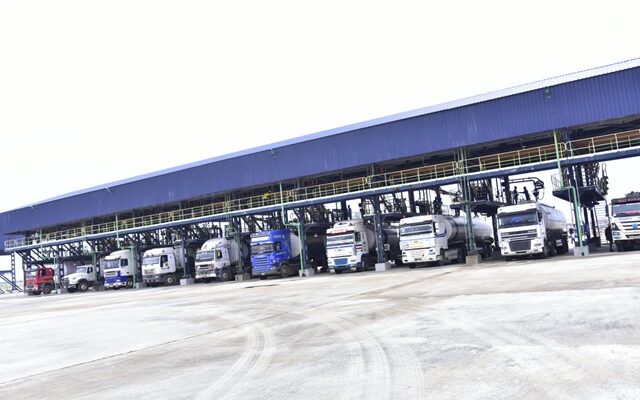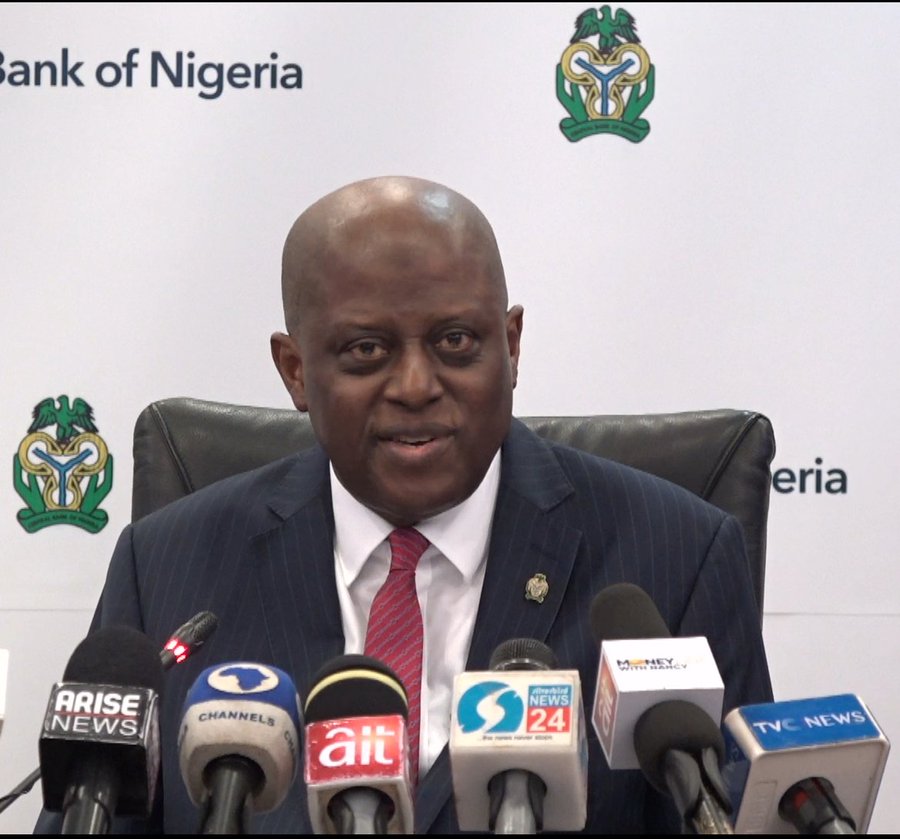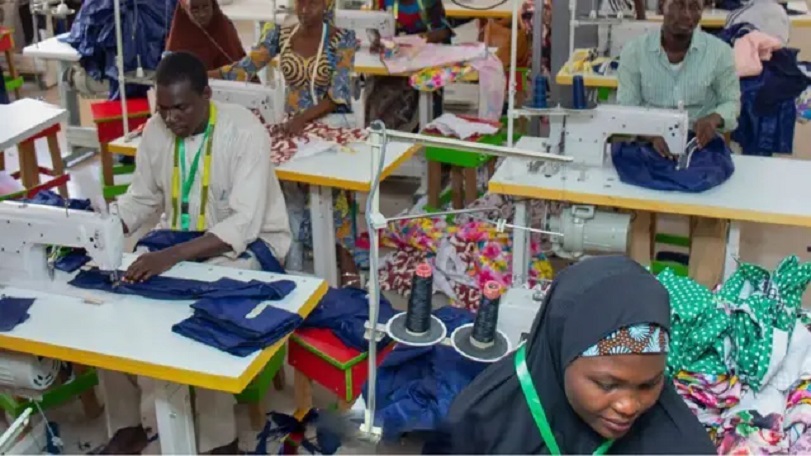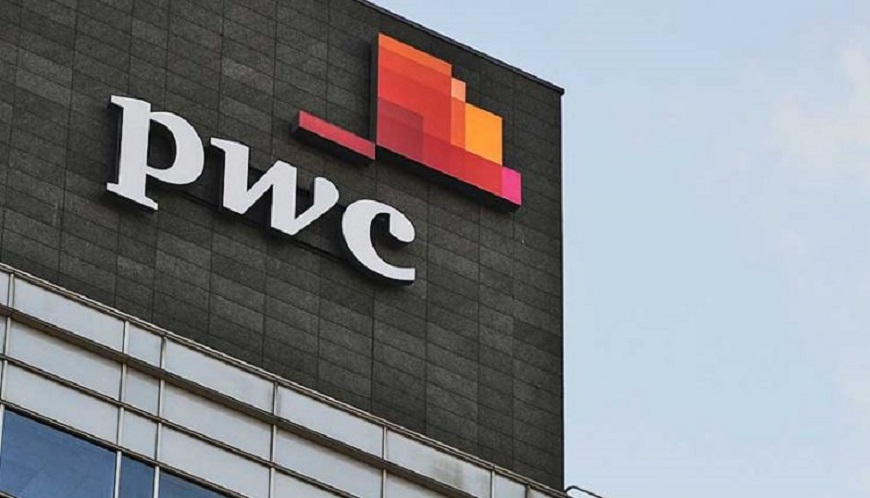Economy
CEO Confidence Rises Despite New Risks, Uncertainty—PwC


By Modupe Gbadeyanka
Worldwide, CEOs’ confidence levels for their growth prospects and outlook for the economy is back on the rise amidst new risks and uncertainty.
In PwC’s 20th annual survey of CEOs worldwide, 38% (2016:35%) are very confident about their company’s growth prospects in the next 12 months while 29% (2016:27%) believe global economic growth will pick up in 2017.
Just over one-third (33%) of South African CEOs are very confident of their company’s own growth in the next 12 months, 4 points down on last year, and 5 points below this year’s global average (38%). Furthermore, only 19% expect global economic growth to improve in the next 12 months, 10 points below the global average.
Commenting on the survey results, Dion Shango, CEO of PwC Southern Africa, says: “Despite significant challenges in 2016, CEO confidence is on the rise – albeit slowly and still has some way to go from the levels that we saw back in 2007. Across the globe, there are signs of optimism despite mixed views on how the global economy will respond to the recent US presidential election result as well as the outcome of the UK Brexit vote.”
The global survey results, based on interviews with 1379 CEOs from 79 countries, were released at the World Economic Forum annual meeting in Davos yesterday. In South Africa 36 CEOs from a broad spectrum of listed and privately-owned companies participated in our survey.
“It is positive to note that local CEOs expect to increase their headcount in the next 12 months. CEOs are promoting talent diversity and inclusiveness; they have implemented strategies to reflect the skills and employment structures needed for the future,” Shango comments.
PwC’s annual 20th Global CEO Survey explores what CEOs in 2017 think about three imperatives: a people and technology strategy that is fit for the digital age, preserving trust in a world of increasingly virtual interactions, and making globalisation work for everyone by engaging even more with society and collaborating to find solutions.
“The challenge to all three imperatives is leadership. How leaders engage with employees and stakeholders has never been more important. A company’s strategy must be built upon a long-term vision of growth, access, equality, innovation, and the human endeavour,” adds Shango.
Where CEOs will look for growth
PwC’s first global survey (1997) showed emerging markets – including China and India as a sure bet for success. But the changeability of markets, exacerbated by current volatility, has caused CEOs to turn to a greater mix of countries. This year’s survey shows the US, Germany and the UK have become bigger priorities, while enthusiasm for investing in Brazil, India, Russia and Argentina has lessened from three years ago.
South African CEOs named China (36%), the UK (31%), the US (25%) and India (22%) as the most important countries for their organisation’s overall growth prospects.
New York (8%), Tokyo (8%) and London (19%) were also identified as the most important cities to an organisation’s overall growth prospects over the next 12 months.
Threats
While 91% of South African CEOs are very confident of their company growth over the next three years, their levels of concern about exchange rate volatility (92%), uncertain economic growth (92%), overregulation (89%), social instability (89%), and geopolitical uncertainty (83%) remain very high.
Of business threats, 89% (compared to 77% globally) of South African CEOs cited the availability of key skills, 69% (compared to 49% globally) cited volatile energy costs, 67% (compared to 61% globally) cited cyber threats, and 64% (compared to 70% globally) stated the speed of technological change as concerns.
Driving corporate growth
This year, 83% of South African CEOs (compared to 79% globally) plan to expand by way of organic growth in the next 12 months. Sixty-nine percent of local CEOs (compared to 62% globally) plan to implement a cost-reduction initiative. In addition, 61% of CEOs (compared to 48% globally) plan to enter into a new strategic alliance or joint venture, and 53% (compared to only 41% globally) propose a new M&A.
Technology and Trust
CEOs say that technology is now inseparable from a business’ reputation, skills and recruitment, competition and growth. Sixty-one percent of South African CEOs say technology has either completely reshaped or had a significant impact on competition in their industry. Furthermore, 75% say it will have a major impact in the next five years.
Twenty years ago, trust wasn’t high on the business agenda for CEOs. This year, 58% of CEOs globally worry that a lack of trust in business will harm their company’s growth, up from 37% in 2013. After several high-profile technology and security issues for big companies, CEOs identified cyber security, data privacy breaches and IT disruptions as the top three technology threats to stakeholder trust. More than half of South African CEOs (58%) cited risks from the use of social media, 53% cited breaches of data privacy and ethics, and 50% cited cyber security breaches as concerns.
Headcount and talent
Concern about skills has more than doubled in 20 years (from 31% concerned in 1998 to 77% in 2017) and human capital is a top three business priority, with diversity and inclusiveness and workforce mobility amongst the strategies being used to address future skill needs. Skills availability is a concern for over three quarters (77%) of business leaders, and is highest for CEOs in Africa (80%), and Asia Pacific (82%).
More than half of South African CEOs (58%) expect to increase their headcount in the next 12 months, with 14% planning to cut their workforce.
Impact of globalisation
More than half of CEOs (58%) globally think it has become harder to balance globalisation with rising trends in protectionism. For the past 20 years CEOs have largely been positive about the contribution of globalisation to the free movement of capital, goods and people. However, this year’s survey respondents are sceptical that it has mitigated climate change or helped create full and meaningful employment to close the gap between rich and poor.
Seventy-two percent of South African CEOs (compared to 62% globally) said globalisation had to a large extent helped with universal connectivity, and 44% (compared to 60% globally) said it had helped with improving the ease of moving capital, people, goods and information.
Concludes Shango: “Looking forward, CEOs will require a different set of skills. The events of the past year have shown us just how interconnected the interests of shareholders and other stakeholders really are. Those businesses that articulate their purpose, anticipate risks and adhere to the value they profess will thrive. Businesses that ignore the power of the people will jeopardise the growth they seek.”
Economy
Shettima Blames CBN’s FX Intervention for Naira Depreciation

By Adedapo Adesanya
Vice President Kashim Shettima has attributed the Naira’s recent depreciation to the intervention of the Central Bank of Nigeria (CBN) in the foreign exchange (FX) market, stating that the currency could have strengthened to around N1,000 per Dollar within weeks if the apex bank had allowed market forces to prevail.
The local currency has dropped over N8.37 on the Dollar in the last week, as it closed at N1,355.37/$1 on Tuesday at the Nigerian Autonomous Foreign Exchange Market (NAFEM), after it went on a spree late last month and into the early weeks of February.
However, speaking on Tuesday at the Progressive Governors’ Forum (PGF), Renewed Hope Ambassadors Strategic Summit in Abuja, the Nigerian VP said the intervention was to ensure stability.
“In fact, if not for the interventions by the Central Bank of Nigeria yesterday, the 1,000 Naira to a Dollar we are going to attain in weeks, not in months. But for the purpose of market stability, the CBN generously intervened yesterday.
“So, for some of my friends, especially one of our party leaders who takes delight in stockpiling dollars, it is a wake-up call,” the vice president said.
He was alluding to CBN buying US Dollars from the market to slow down the rapid rise of the Naira.
Latest information showed that last week, the apex bank bought about $189.80 million to reduce excess Dollar supply and control how fast the Naira was gaining value.
The move was aimed at preventing foreign portfolio investors from exiting Nigeria’s fixed-income market, as large-scale sell-offs could heighten demand for US Dollars, intensify capital flight, and exert further pressure on the exchange rate.
Amid this, speaking after the 304th meeting of the monetary policy committee (MPC) of the CBN on Tuesday, Governor of the central bank, Mr Yemi Cardoso, said Nigeria’s gross external reserves have risen to $50.45 billion, the highest level in 13 years.
This strengthens the country’s foreign exchange buffers, enhances the apex bank’s capacity to defend the Naira when needed, and boosts investor confidence in the stability of the Nigerian FX market.
Economy
Dangote Refinery Exports 20 million Litres Surplus of PMS

By Aduragbemi Omiyale
Up to 20 million litres in surplus of Premium Motor Spirit (PMS), otherwise known as petrol, is being exported daily by the Dangote Petroleum Refinery and Petrochemicals after supplying about 65 million litres to the domestic market.
Nigeria’s average daily petrol consumption stands at between 50 and 60 million litres, indicating that the refinery’s output exceeds current domestic requirements, marking a decisive break from decades of fuel import dependence and recurrent scarcity.
The president of Dangote Group, Mr Aliko Dangote, speaking in Lagos, while confirming a structured offtake agreement with selected marketers to ensure nationwide distribution and eliminate supply instability, said the structured model was designed to eliminate supply bottlenecks and curb speculative practices that have historically triggered disruptions.
“We have agreed an offtake framework to supply up to 65 million litres daily for the domestic market. Any surplus, estimated at between 15 and 20 million litres, will be exported,” he said.
Under a revised distribution framework endorsed by the Nigerian Midstream and Downstream Petroleum Regulatory Authority, the refinery will channel nationwide supply through major marketing companies, including MRS Oil Nigeria Plc, Nigerian National Petroleum Company Limited Retail (NNPC), 11 plc (Mobil Producing Nigeria), TotalEnergies Marketing Nigeria Plc, Rainoil Limited, Northwest Petroleum & Gas Company Limited, Ardova Plc, Bovas & Company Limited, AA Rano Nigeria Limited, AYM Shafa Limited, Conoil and Masters Energy.
With local refining now exceeding national demand, the country stands to conserve billions of dollars annually in foreign exchange previously spent on petrol imports. Analysts say this would ease pressure on the naira, strengthen external reserves, and improve trade balance stability.
Economy
NECA, CPPE Laud CBN’s 0.50% Interest Rate Cut

By Adedapo Adesanya
The Nigeria Employers’ Consultative Association (NECA) and the Centre for the Promotion of Private Enterprise (CPPE) have separately commended the Central Bank of Nigeria (CBN) for reducing the Monetary Policy Rate (MPR) from 27.0 per cent to 26.5 per cent at its 304th Monetary Policy Committee (MPC) meeting.
In reaction, NECA Director-General, Mr Adewale-Smatt Oyerinde, praised the decision in a statement, noting that the 50 basis-point cut is “a cautious but noteworthy signal” that authorities were responding to sustained pressures on businesses.
He said the marginal reduction might not immediately lower lending rates, but reflected “a gradual shift toward supporting growth without undermining price stability”.
According to him, the overall stance remained tight, with the Cash Reserve Ratio retained at 45 per cent and the liquidity ratio at 30 per cent.
He added that the asymmetric corridor around the MPR was also maintained, reinforcing a cautious monetary approach.
“With a substantial portion of deposits still sterilised, banks’ capacity to expand credit to the real sector may remain constrained in the near term,” he said.
Mr Oyerinde described the move as “a careful balancing act” aimed at moderating inflation without worsening pressures on businesses.
He noted that firms continued to grapple with high operating costs, exchange rate volatility and weakened consumer demand.
“Inflation, particularly in food, energy and transportation, remains a significant challenge to employers and households,” he said.
He stressed that the modest easing must be supported by coordinated fiscal and structural reforms to address supply-side constraints.
Such reforms, he said, should improve infrastructure and enhance productivity across key sectors of the economy.
Mr Oyerinde urged financial institutions to ensure the MPR reduction was gradually reflected in lending conditions for manufacturers and SMEs.
He affirmed that although the MPC had not fully relaxed its tightening stance, the rate cut signalled cautious optimism.
“Sustained improvements in inflation, exchange rate stability and investor confidence will determine scope for further easing that supports growth and employment,” he said.
On its part, the CPPE said the decision reflected improving macroeconomic fundamentals and a cautious shift from aggressive tightening.
The organisation noted that sustained disinflation, stronger external reserves, an improved trade balance and relative exchange-rate stability had created room for monetary easing.
It said the rate cut could boost investor confidence and support private-sector growth, but cautioned that weak monetary transmission might limit its impact on lending rates.
The CPPE identified high cash reserve requirements, elevated lending rates, government borrowing and structural banking costs as major constraints to effective transmission.
The group also stressed the need for fiscal consolidation, citing high public debt, persistent deficits and rising debt-service obligations as risks to macroeconomic stability.
According to the chief executive of CPPE, Mr Muda Yusuf, effective policy coordination and stronger transmission mechanisms were critical to unlocking investment and sustaining growth, lauding the CBN for what he described as a measured and data-driven policy adjustment.
The CPPE boss noted that the easing reflected strengthening macroeconomic performance, declining inflation, growing reserves, improved trade balance and enhanced foreign exchange stability.
Mr Yusuf added that for the benefits of monetary easing to be fully realised, authorities must strengthen transmission to ensure lower lending rates for the real sector and advance credible fiscal consolidation to safeguard stability.
He said that if supported by structural reforms and disciplined fiscal management, the current policy direction could unlock a stronger investment cycle and more durable economic growth.
-

 Feature/OPED6 years ago
Feature/OPED6 years agoDavos was Different this year
-
Travel/Tourism10 years ago
Lagos Seals Western Lodge Hotel In Ikorodu
-

 Showbiz3 years ago
Showbiz3 years agoEstranged Lover Releases Videos of Empress Njamah Bathing
-

 Banking8 years ago
Banking8 years agoSort Codes of GTBank Branches in Nigeria
-

 Economy3 years ago
Economy3 years agoSubsidy Removal: CNG at N130 Per Litre Cheaper Than Petrol—IPMAN
-

 Banking3 years ago
Banking3 years agoSort Codes of UBA Branches in Nigeria
-

 Banking3 years ago
Banking3 years agoFirst Bank Announces Planned Downtime
-

 Sports3 years ago
Sports3 years agoHighest Paid Nigerian Footballer – How Much Do Nigerian Footballers Earn



















